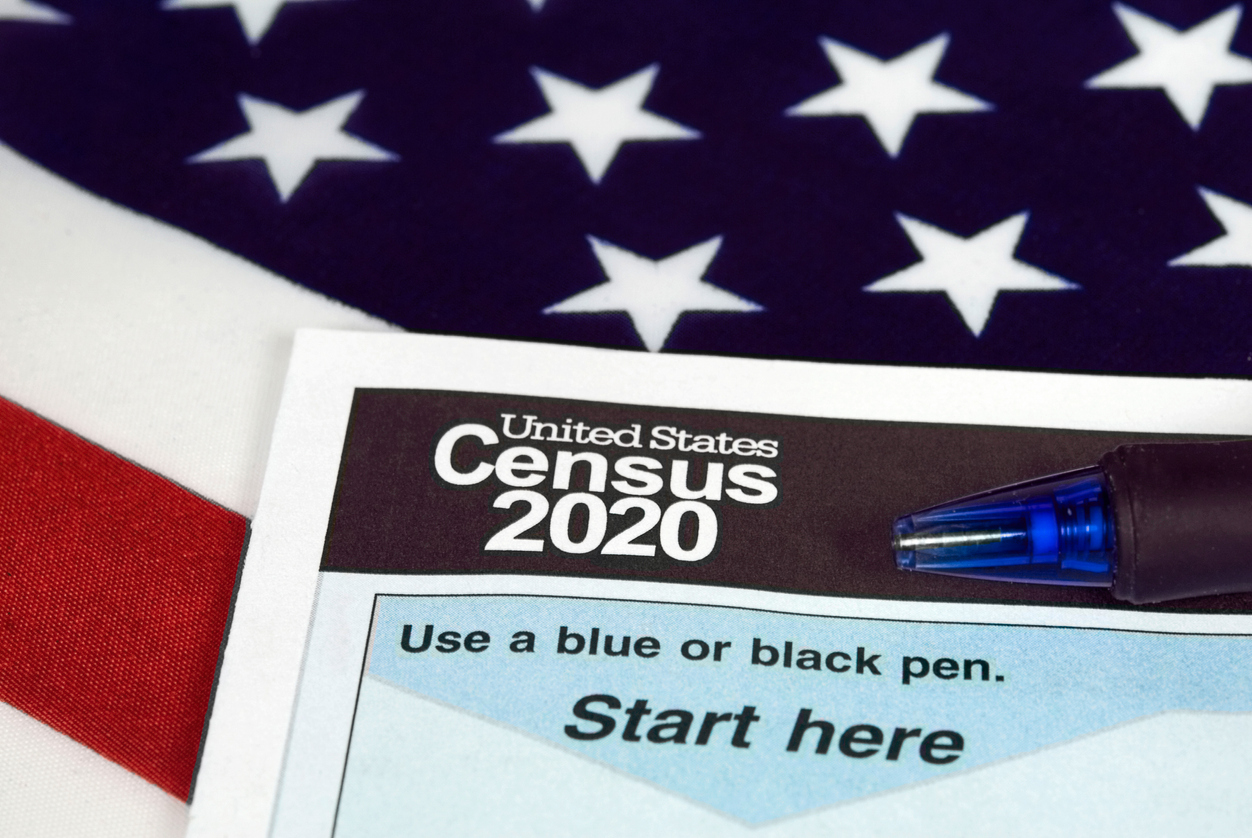April 22, 2019
The President Weaponizes the Census

Voter ID, list purges, poll closings, gerrymandering—all well-known favorites from the conservative playbook on rigging elections. But why stop there? Why not just avoid counting minorities in the first place?
That’s what the Trump administration is trying to do by seeking to add a “citizenship question” to the 2020 U.S. Census. And it’s the subject of a highly important, but little-known case making its way to the U.S. Supreme Court right now. Oral arguments are scheduled for April 23.
In the apportionment clause of Article I of the Constitution, the framers detailed how seats in the House of Representatives would be allocated as the nation grew. Election districts for congressional, state, and local offices must be drawn to include an equal number of people, or as near as “practicable” (for congressional districts), or “substantially” equal (for state and local districts). This means that districts must be close in population size to other district in each state. The Constitution also sets a time frame for this process by requiring a count of the population every ten years—the census—which then provides the numbers for the apportionment of congressional districts among the states.
For them, patience is a virtue that pays off generously in lasting legislative and policy victories. Jeff Timmer, a Michigan Republican who has worked to craft district lines in that state, likens redistricting to Halley’s comet. “It comes around on a recurring, predicable basis. It’s great to be a Halley’s comet expert when it comes around. But in between times, no one really has any use for it. You know, one of the inside secrets of politics is how critical redistricting is.”
Last year, President Trump’s Commerce Secretary, Wilbur Ross, announced that the upcoming 2020 census would include a “citizenship question.” Opponents of this move quickly pointed out that doing so would deter immigrant households from responding and that this would result in a severe undercount. The result? Significant funding and representation disparities disproportionately affecting communities of color. The Trump administration moved ahead nonetheless.
In United States Department of Commerce v. State of New York, U.S. District Judge Jesse Furman barred the government from including the question, taking the administration to task for “’a veritable smorgasbord of classic, clear-cut’ violations of the Administrative Procedure Act, including cherry-picking evidence to support [their] choice.”
The abhorrent racism of the Trump administration has been on full display since he took the oath of office that dark January day in 2017. And other than his immigration policies, perhaps no other issue demonstrates his contempt for communities of color more than his effort to skew the U.S. Census with the addition of a “citizenship question.” It is a strike at the very heart of our democracy and an affront to the U.S. Constitution conservatives claim to hold so dear.
In addition to the new question, the Trump administration has severely underfunded and understaffed the Census Bureau. Unlike in 2010, however, there is already a group of advocates and funders focused on both political and legal responses to the Right’s shenanigans, including lawsuits to expose government wrongdoing (or maybe more accurately “non-doing”). Nonetheless, the challenge is daunting.
In 2010, Republicans dumped $30 million into state races—triple the amount of Democrats—to wrest control of the once-in-a-decade process of congressional redistricting and then, with their new statehouse majorities, draw maps that favored Republicans and pass laws that disenfranchised Democrats and people of color. Between a newly configured census featuring a “citizenship question” designed to exclude large numbers of minorities and disfavor urban areas and its aggressive voter suppression efforts across the country, the Republican Party could rig our system so completely that the promise of “We the People” will be permanently broken. Will the Supreme Court allow that to happen?




